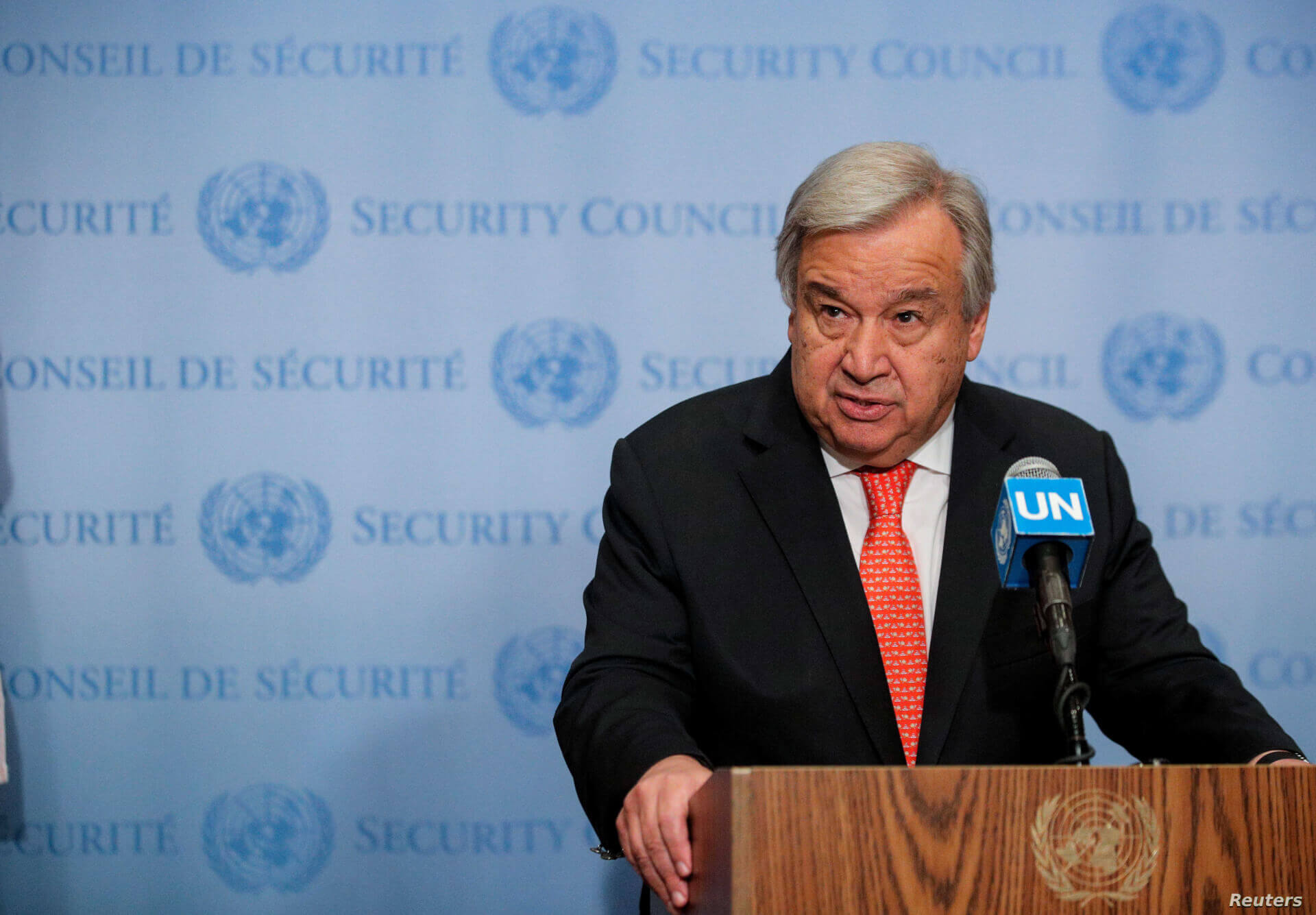United Nations (UN) Secretary-General António Guterres lauded Africa’s response to the coronavirus, saying that its approach offers “lessons for some developed nations” that have been hit far harder, despite having supposedly superior healthcare infrastructure and systems of governance. The entire continent has thus far recorded over 92,000 COVID-19 cases, with 2,918 deaths. To put those numbers into perspective, the US alone has close to 1.6 million cases, with around 95,000 deaths. In addition, Spain, the United Kingdom (UK), Italy, France, and Germany all have more cases and deaths individually than the entire continent of Africa.
Guterres said, “Most African governments and organisations took in time very brave prevention measures which provide a lesson for some developed nations that did not.” He added, “Most [African countries] have moved rapidly to deepen regional coordination, deploy health workers, and enforce quarantines, lockdowns and border closures.” Guterres further remarked that one of the reasons behind the efficiency of Africa’s response is its experience with disease outbreaks in the recent past, such as HIV/Aids, Ebola, and the Swine Flu.
Nevertheless, he urged caution and against celebrating too soon as the pandemic is still in its “early days”, warning that “disruption could escalate quickly”. In fact, World Health Organization (WHO) estimates that the coronavirus could kill between 83,000 and 190,000 Africans if containment measures fail, and claims that between 29 million and 44 million people could contract the virus. In April, the UN projected that the pandemic will kill at least 300,000 people in Africa.
Aside from the impending increase in cases and deaths, Africa’s economy has also been rendered even more vulnerable than it already was prior to the pandemic. The UN predicts that this crisis could push around 30 million people into poverty over the next three to six months. Given these vulnerabilities, the UN Economic Commission for Africa has called for a $100 billion safety net and a moratorium on external debt payments.
Accordingly, the UN Secretary-General further said, “The pandemic threatens African progress. It will aggravate long-standing inequalities and heighten hunger, malnutrition and vulnerability to disease.” Thus, he held that “African countries should also have quick, equal and affordable access to any eventual vaccine and treatment, that must be considered global public goods”. Simultaneously, he called on the international community to help strengthen Africa’s “health systems”, maintain food supplies, “support education, protect jobs, keep households and businesses afloat, and cushion the continent against lost income and export earnings”.
These calls have been echoed by the African Union (AU) in the past, with Chairperson Cyril Ramaphosa urging countries to lift sanctions against Zimbabwe and Sudan, approve $44 billion in debt relief, suspend interest payments, and provide a stimulus package of $100-150 billion.
Much of this concern is driven by the fact that there appears to be no end in sight. In April, Africa recorded an 884% rise in COVID-19 cases from the previous month, and countries like Egypt extended their states of emergency by three months. Simultaneously, the UN has warned that the low number of cases in Africa could be a result of “minimal testing and reporting”.
This situation is thrown into even greater peril by leaders such as Madagascar’s president, Andry Rajoelina, who has publicly endorsed an unproven herbal concoction, Covid-Organics (CVO), as a treatment and cure for the coronavirus. Aside from the WHO, the efficacy and safety of the herbal medication has also been questioned by local bodies such the AU, the Economic Community of West African States (ECOWAS), the Africa Centres for Disease Control and Prevention, and the National Academy of Medicine of Madagascar.
In spite of these cautions, the Republic of Congo, Chad, Nigeria, Gambia, the Democratic Republic of Congo, Equatorial Guinea, Comoros, Senegal, Ghana, Guinea-Bissau, Liberia, and Tanzania all placed orders for the drug. In fact, Madagascar is donating consignments of the drug to all 15 members of ECOWAS even if the organization itself has distanced itself from endorsing it.
Alongside CVO, Africa’s coronavirus response is also threatened by leaders such as Tanzanian President John Pombe Magufuli and Zambian President Edgar Lungu. Magufuli has called the coronavirus a “devil” that “cannot live in the body of Christ” as it will “burn instantly”. Therefore, he called on Tanzanians to defeat COVID-19 through prayer, and did not place any lockdown restrictions on churches and mosques. Similarly, in April, Lungu allowed churches in Zambia to reopen.
Ultimately, Guterres’ statement that Africa has fared better than several developed countries does hold true. However, Africa’s protective shield is quickly dissipating as a result of dangerous policymaking in some countries that is guided by a misguided understanding of science and a reckless devotion to religion. At the same time, a lack of testing may mask the true severity of the situation. Nevertheless, even in the absence of all these factors, the societal and economic devastation that will be wrought by the coronavirus is sure to cripple already embattled economies.
Image Source: Voice of America
UN Secretary-General Says Developed Countries Can Learn From Africa’s COVID-19 Response
Africa's response could be attributed to its experience with Ebola and HIV/AIDS.
May 21, 2020

